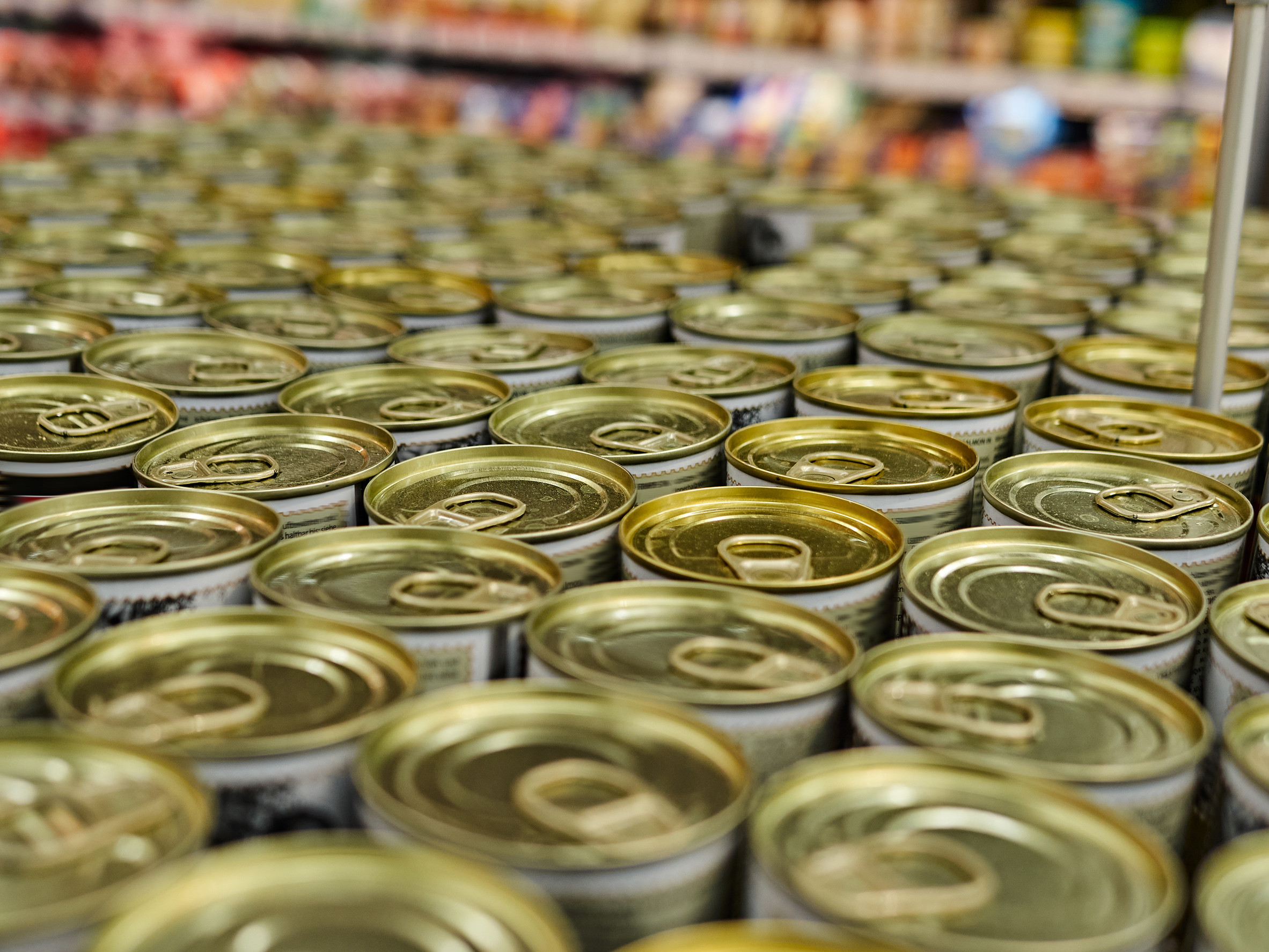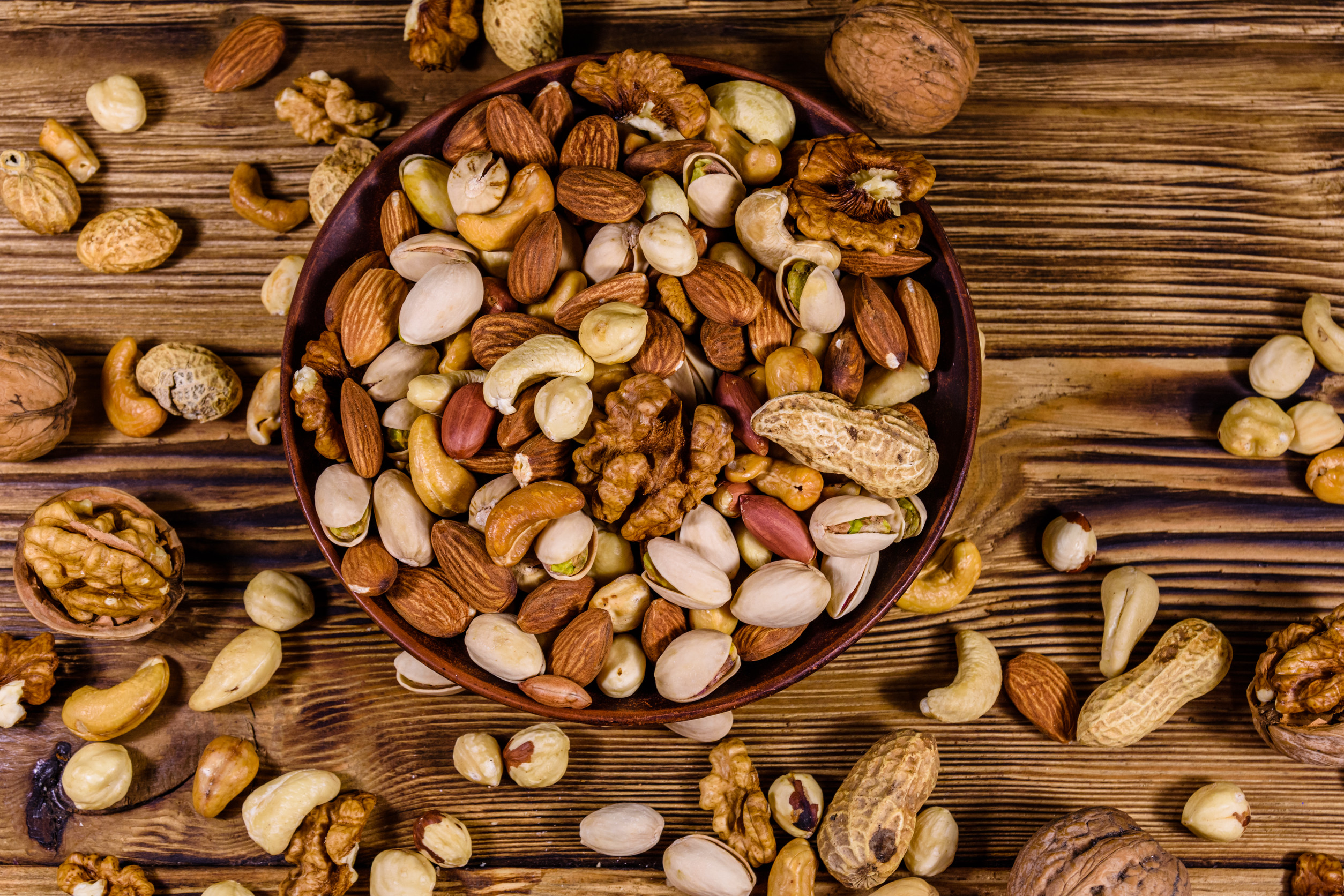Trade tensions and looming tariffs are pushing grocery prices higher—and sparking shortages on your favorite items. If you want to protect your pantry (and your wallet), it’s time to stock up on foods that are most at risk. Preparing now can help you avoid inflated prices, empty shelves, and impulse spending. This article highlights five essential foods that could vanish or become expensive soon, so read on before it’s too late.
Should You Stock Up On Foods Now?

Image Source: 123rf.com
1. Canned Goods (Soup, Fruit & Vegetables)
Tariffs on imported steel, especially tin‑plate steel used in cans, are predicted to spike canned‑food prices by 9–15%. Around 75% of the steel for food cans is imported, which makes canned staples vulnerable to rising costs. As domestic production can’t make up the difference, shortages could disrupt your usual stock. Canned goods are shelf‑stable, versatile, and easy to store, making them ideal picks when you stock up on foods to beat tariff-driven shocks. Having a well-rounded canned-food cache lets you stay fed, even if prices surge.
2. Coffee
Coffee beans come from regions like Vietnam and Brazil, and tariffs on Vietnamese beans recently reached around 46%. Higher tariffs will likely translate into steep price hikes at your local café and in grocery aisles. Since coffee is a consumable many rely on daily, now is a smart time to stock up on foods like whole bean or ground coffee before costs climb. Purchase airtight bags or get them vacuum-sealed to preserve freshness for months. That morning ritual won’t be put on hold when prices jump.
3. Olive Oil & Imported Spices
Imported olive oil, vanilla, and spices like pepper, cinnamon, and saffron are seeing sharp price increases. For example, black pepper alone has been hit by tariffs and production shortfalls, causing surging costs. Whether you’re sautéing, baking, or grinding, these pantry staples enhance flavor, and inflation could make them luxury items soon. To avoid paying more later, stock up on foods like olive oil and spices now, and store them properly to maintain quality. Small provisions now could mean big savings throughout the year.
4. Cheese & Dairy Imports
Imported cheeses—including Parmesan, Brie, and specialty European varieties—are under threat from tariff hikes. Dairy products often require sanitary packaging and international shipping, which may face higher steel or aluminum input costs. When these imported items disappear from grocery shelves, prices on domestic options could surge. If a creamy wedge or aged brick is a staple in your fridge, it’s wise to stock up on foods like shelf-stable cheese varieties or stretchy wheels while they’re still available. You’ll thank yourself later when specialty cheese aisles go sparse—or pricey.
5. Nuts & Dry Goods

Image Source: 123rf.com
Cashews, Brazil nuts, almonds, and other nuts—especially imported ones—are likely to face tariff or logistical cost pressure. These high‑protein snacks are shelf-stable and popular across diets, but import costs could drive prices higher. Similarly, foundational dry goods—rice, beans, and pasta—can become limited when international supply chains strain. To keep meals nutritious and pantry-friendly, stock up on foods like nuts and grains now. These non-perishables are easy to store and can often be bought in bulk before tariffs bite.
Tariffs May Empty Shelves—But You Don’t Have To
Tariff measures on steel, aluminum, and imported goods risk emptying grocery aisles and raising prices, right when you need essentials most. Being proactive and choosing to stock up on foods now isn’t hoarding—it’s smart preparation. Canned goods, coffee, spices, cheeses, nuts, and dry staples are all vulnerable to policy shifts. By stocking your pantry thoughtfully, you can keep meals stable, costs down, and stress low amid uncertainty. An organized pantry built with these five foods helps you navigate supply disruptions—and keeps you ready for anything.
Which of these staples do you always buy extra of during uncertain times? Share your pantry strategy and tips in the comments below!
Read More
What Foods Will Be Impacted By Tariffs?
The Impact of Tariffs on Retail Prices: Are Consumers Bearing the Brunt?

